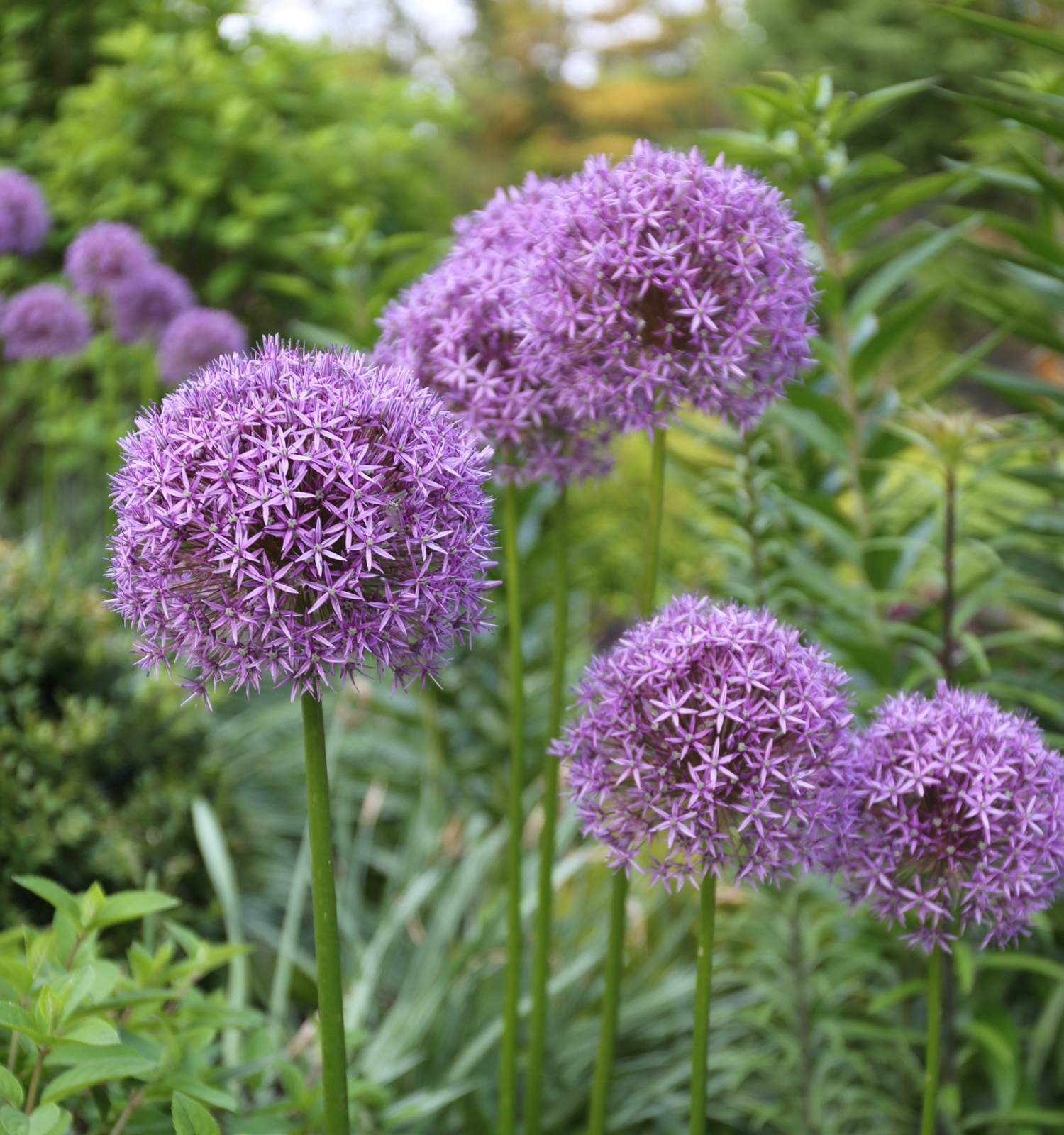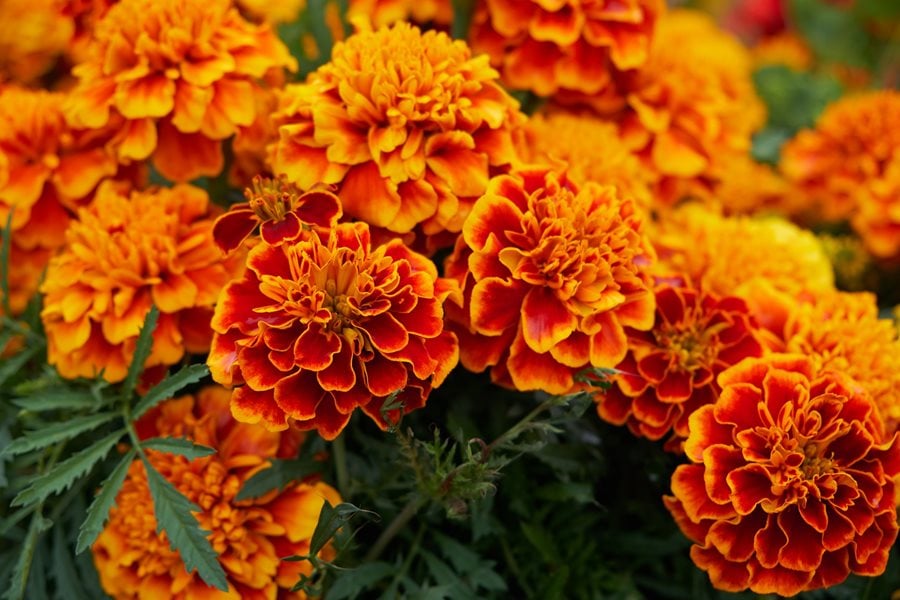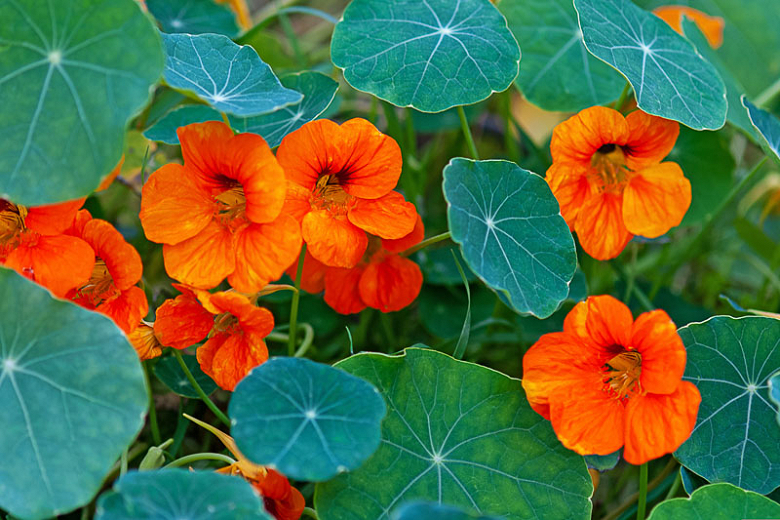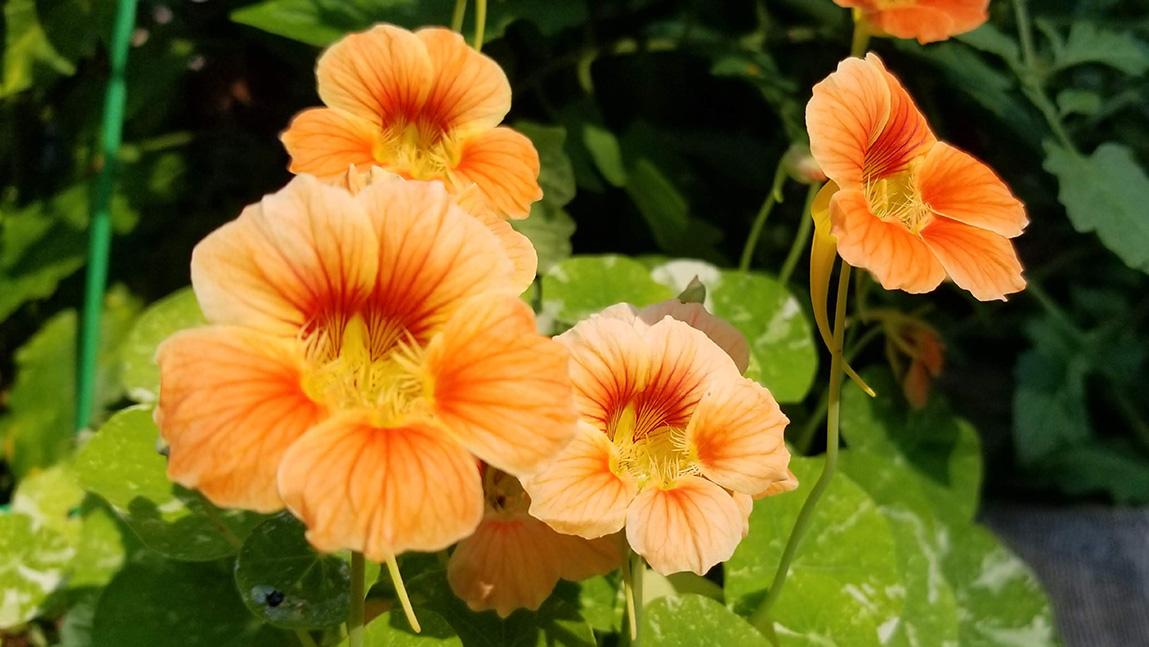Companion Plants That Will Keep Aphids Away
Companion Planting That Will Keep Aphids Away
Aphids are small, soft-bodied insects that can be a major nuisance for gardeners. They feed on the sap of plants, which can weaken and even kill them. Aphids can also spread diseases between plants.
There are a number of ways to control aphids, including using insecticidal soap, neem oil, or horticultural oil. However, many gardeners prefer to use natural methods to control pests, such as companion planting.
Companion planting is the practice of planting certain plants together to benefit each other. Some plants have naturally occurring chemicals that repel pests, while others attract beneficial insects that prey on pests. By planting companion plants together, you can create a garden that is more resistant to pests and diseases.
Here are some companion plants that will help keep aphids away:
- Alliums: Alliums, such as garlic, onions, chives, and leeks, have a strong scent that repels aphids. They also release volatile oils that can kill aphids on contact.

- Marigolds: Marigolds are another great choice for companion planting. They have a strong scent that repels aphids, as well as other pests such as beetles, spider mites, and whiteflies. Marigolds also attract beneficial insects such as ladybugs and parasitic wasps, which prey on aphids.

- Catnip: Catnip is not just for cats! It also has a strong scent that repels aphids. Catnip can also attract beneficial insects such as hoverflies and lacewings, which prey on aphids.
- Basil: Basil has a strong scent that repels aphids. It also contains compounds that can kill aphids on contact. Basil is a good companion plant for tomatoes, peppers, eggplants, and beans.

- Nasturtiums: Nasturtiums are another great choice for companion planting. They have a strong scent that repels aphids, as well as other pests such as whiteflies and cabbage loopers. Nasturtiums also attract beneficial insects such as ladybugs and lacewings, which prey on aphids.

- Rue: Rue has a strong, bitter scent that repels aphids and other pests. It can also be used to make an insecticidal spray. Rue is a good companion plant for cabbage, broccoli, and cauliflower.

- Yarrow: Yarrow has a strong scent that repels aphids and other pests. It also attracts beneficial insects such as ladybugs and lacewings, which prey on aphids. Yarrow is a good companion plant for roses, tomatoes, and beans.

- Tansy: Tansy has a strong, camphor-like scent that repels aphids and other pests. It can also be used to make an insecticidal spray. Tansy is a good companion plant for cabbage, broccoli, and cauliflower.

When planting companion plants, it is important to consider the size and growth habit of the plants. Some companion plants, such as marigolds and nasturtiums, can grow quite tall. If you are planting them in a small garden, you may want to choose shorter varieties.
You should also consider the sun and water requirements of the companion plants. Make sure that the plants you choose will thrive in the same conditions.
By planting companion plants together, you can create a garden that is more resistant to pests and diseases. This can save you time and money, and it can also help you enjoy your garden more.
Aphids are small, soft-bodied insects that can be a major nuisance for gardeners. They can quickly infest plants and suck the sap out of leaves, stems, and flowers, causing them to wilt, deform, and even die.
There are a number of ways to control aphids, including using insecticidal soaps, neem oil, or horticultural oils. However, if you prefer to use a more natural approach, companion planting is a great option.
Companion planting is the practice of planting certain types of plants together in order to create a beneficial relationship between them. Some plants, such as onions, garlic, and nasturtiums, have strong scents that repel aphids. Other plants, such as yarrow and dill, attract beneficial insects, such as ladybugs and lacewings, which prey on aphids.
If you're looking for a natural way to control aphids in your garden, companion planting is a great option. To learn more about which plants are good companion plants for aphid control, visit Gardenia Inspiration.
FAQ of companion planting for aphids
Q: What are aphids?
Aphids are small, soft-bodied insects that suck the sap from plants. They can cause damage to plants by weakening them and transmitting diseases.
Q: What are some companion plants that repel aphids?
Some companion plants that repel aphids include:
- Basil: Basil has a strong scent that aphids find unpleasant. It is a good companion plant for tomatoes, peppers, beans, eggplant, and asparagus.
- Garlic: Garlic has a strong sulfurous smell that aphids find repulsive. It is a good companion plant for cabbage, broccoli, cauliflower, and other brassicas.
- Onion: Onions have a strong scent that aphids find unpleasant. They are a good companion plant for brassicas and carrots.
- Marigold: Marigolds release a chemical that repels aphids. They are a good companion plant for most vegetables.
- Nasturtium: Nasturtiums have a strong scent that aphids find unpleasant. They are also a good trap crop for aphids, as aphids are attracted to their bright colors.
Q: What are some companion plants that attract aphids?
Some companion plants that attract aphids include:
- Cabbage: Cabbage is a favorite food of aphids. Other brassicas, such as broccoli, cauliflower, and kale, are also attractive to aphids.
- Beans: Beans are another crop that is attractive to aphids.
- Potatoes: Aphids are also attracted to potatoes.
- Tomatoes: Tomatoes are a common target for aphids.
- Melons: Melons are another crop that is attractive to aphids.
Q: How can I use companion planting to control aphids?
You can use companion planting to control aphids by planting aphid-repelling plants near your crops. This will help to deter aphids from feeding on your plants. You can also plant aphid-attracting plants away from your crops. This will help to lure aphids away from your plants and towards the aphid-attracting plants.
Q: What other methods can I use to control aphids?
In addition to companion planting, there are a number of other methods you can use to control aphids, such as:
- Physical removal: You can remove aphids by hand, using a strong stream of water, or by using insecticidal soap.
- Biological control: You can introduce natural predators of aphids, such as ladybugs, lacewings, and hoverflies, into your garden.
- Insecticidal oils: Insecticidal oils can be used to kill aphids. However, they should be used with caution, as they can also harm beneficial insects.
- Insecticidal soaps: Insecticidal soaps can be used to kill aphids. They are less harmful to beneficial insects than insecticidal oils.
Image of companion planting for aphids
5 different images of companion planting for aphids from Pinterest:
- Nasturtiums and cabbage: Nasturtiums are a great companion plant for cabbage because they attract aphids away from the cabbage. Aphids prefer the nasturtiums' leaves, so they will leave the cabbage alone.

- Chives and tomatoes: Chives are another good companion plant for tomatoes. They release a chemical that helps to repel aphids.
- Marigolds and roses: Marigolds are often planted near roses to help deter aphids. The marigolds' scent is said to be unpleasant to aphids, and they may also help to attract beneficial insects that prey on aphids.

- Lavender and beans: Lavender is a fragrant herb that can help to repel aphids. It can be planted near beans to help keep these pests away.
- Pot marigolds and strawberries: Pot marigolds are another type of marigold that can be used as a companion plant for strawberries. They release a chemical that helps to repel aphids, and they may also help to attract beneficial insects that prey on aphids.

Post a Comment for " Companion Plants That Will Keep Aphids Away"